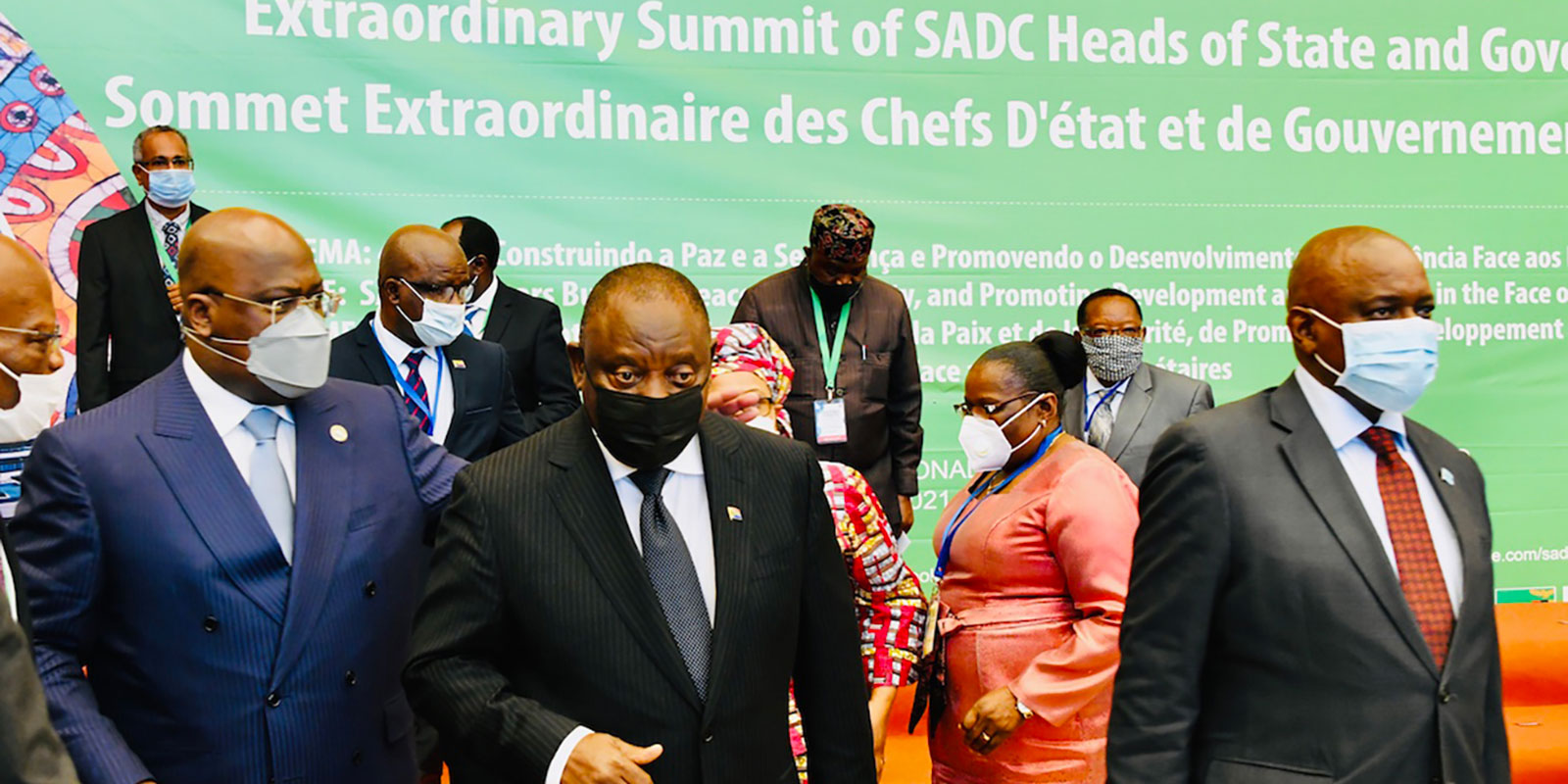This begs the question, is SADC’s development agenda inclusive, progressive and people centred, or is it another charade of development strategies aimed at high growth rates without actually infusing growth and development for the peoples of SADC; the intended beneficiaries of the purported development.
#COVID-19 had a significant impact on politics in the #SADC region as reflected in recent developments in Eswatini, Zambia, South Africa and Madagascar where there have been hostilities, civil unrest and instability owing largely to economic hardships in the respective countries
Tweet
Notwithstanding its effects on lives, the pandemic also affected the regional integration agenda through delays on the completion of infrastructural developments such as one stop border posts (OSBP) between countries such as Zimbabwe-South Africa, Zambia-Malawi, Malawi-Mozambique and interconnection projects such as Kazungula Bridge and The Inga dam corridor amongst others.
As the SADC Heads of State and Government Summit closed on 18 August 2021 under the theme, “Bolstering Productive Capacities in the Face of COVID-19 Pandemic for Inclusive, Sustainable, Economic and Industrial Transformation’, it is imperative that the region not only continue to take stock of the developments that it has achieved as a region but also genuinely address the systemic gaps that cause SADC to lag behind on its development agenda. With regard to the SADC Heads of State and Government Communique; while it is a show of solidarity on critical issues such as the risks of the Post-Cotonou Agreement and the Neighbourhood Development and International Cooperation Instrument (NDICI) which may fragment Africa, Caribbean and Pacific (APC) countries; it weakens Regional Economic Communities (RECs), shifts agenda setting powers from Member States to other Parties which was a welcome deliberation. The same applies to the removal of sanctions on countries such as Zimbabwe as sanctions have an indelible destabilising impact on inclusive and comprehensive trade between Zimbabwe and countries in the region.
Be that as it may, the COVID-19 pandemic has been a learning curve for SADC countries on the importance of strengthening their intraregional trade and investments for the recovery of their economies and to ensure that they thrive during the COVID-19 pandemic. This is because there are signs that the pandemic will persist longer than expected but which can be brought under control through vaccinations and achieving herd immunity among the populations of the region. This is an important aspect if SADC is to retain the progress it had achieved in facilitating trade and investment given that the growth and development projections of SADC countries will be under strain due to the pandemic, thus resilience through tacit health and economic development policy remains key in SADC’s development discourse and regional value chains.
The pandemic also affected the #SADC regional integration agenda through delays on the completion of infrastructure and interconnection initiatives such as the Kazungula Bridge and Inga dam corridor projects @AdyChikowore
Tweet
Given that as the SADC Heads of State and Government Summit was being convened amidst the disruption of global and regional supply chains due to the pandemic, expectations were high to not only make commitments on the regional economy (focussing on reduced foreign direct investment and exports) but also the effects of the pandemic on good governance, peace and security. These tenets are important in attracting investment and creating opportunities for domestic citizens including work and increased cross-border trading. However, the communique was silent on the events that took place in Madagascar and South Africa which directly speak to the inequalities present in the countries that may pose instability in the region. As such, the region, through its regional trade and economic chains especially tripartite partners including the Common Market for East and Southern Africa (COMESA) and the East African Community (EAC) should strengthen the harmonised Tripartite Guidelines on Trade and Transport Facilitation Guidelines for Safe, Efficient and Cost-effective Movement of Goods and Services during the COVID-19 pandemic as its ripple effects have a direct link on development of the welfare of the citizens in the region.
More was also expected from the communique on an explicit and uniform (albeit the difference in economies) strategy and commitment to the creation of jobs given the acute job losses triggered by the pandemic. This would have fitted in perfectly with the theme, Bolstering Productive Capacities in the Face of COVID-19 Pandemic for Inclusive, Sustainable Economic and Industrial Transformation”. It is of importance that the unemployment crisis was also made a key issue at the higher political level of the Heads of States and Government rather than only at the ministerial level.
Going forward three key factors are clear for the SADC region;
- Strengthen Partnerships and Value Chains through prioritising intra-regional trade within the regions and fostering win-win partnerships through South-South partnerships with regions or countries that bring mutual and/or comparative advantages to the region. These may include strengthening and tabling well thought out strategies for engagement with the European Union (EU) and BRICS (Brazil, Russia, India, China and South Africa) group and engaging in Public Private Partnerships that do not drown SADC countries in contingent liabilities and constrained fiscal positions.
- Put People First – for any development strategy to work, people have to be at the heart of the strategy. As such, strengthened partnerships and value chains should ensure that they enhance the facilitation of the movement of people in a safe and efficient manner with comprehensive inclusion of small and medium-sized enterprises doing cross-border trade.
- Good Governance, Peace and Security remain tenets that attract foreign direct investment in the region. As such, SADC countries should deal with corruption, economic capture by multinational companies, oligarchs and corrupt politically exposed persons. What is important is objectivity towards the big brother syndrome where no or skewed decisions are made on matters that have the potential of destabilising the region. Objective peer review is a requisite need for SADC member countries.
Adrian Chikowore is a policy analyst focussing on development effectiveness, trade and south-south cooperation.


